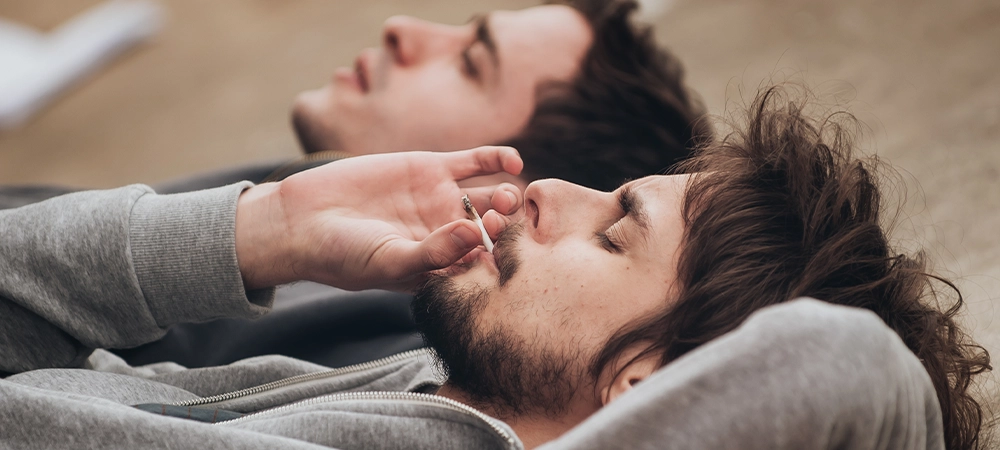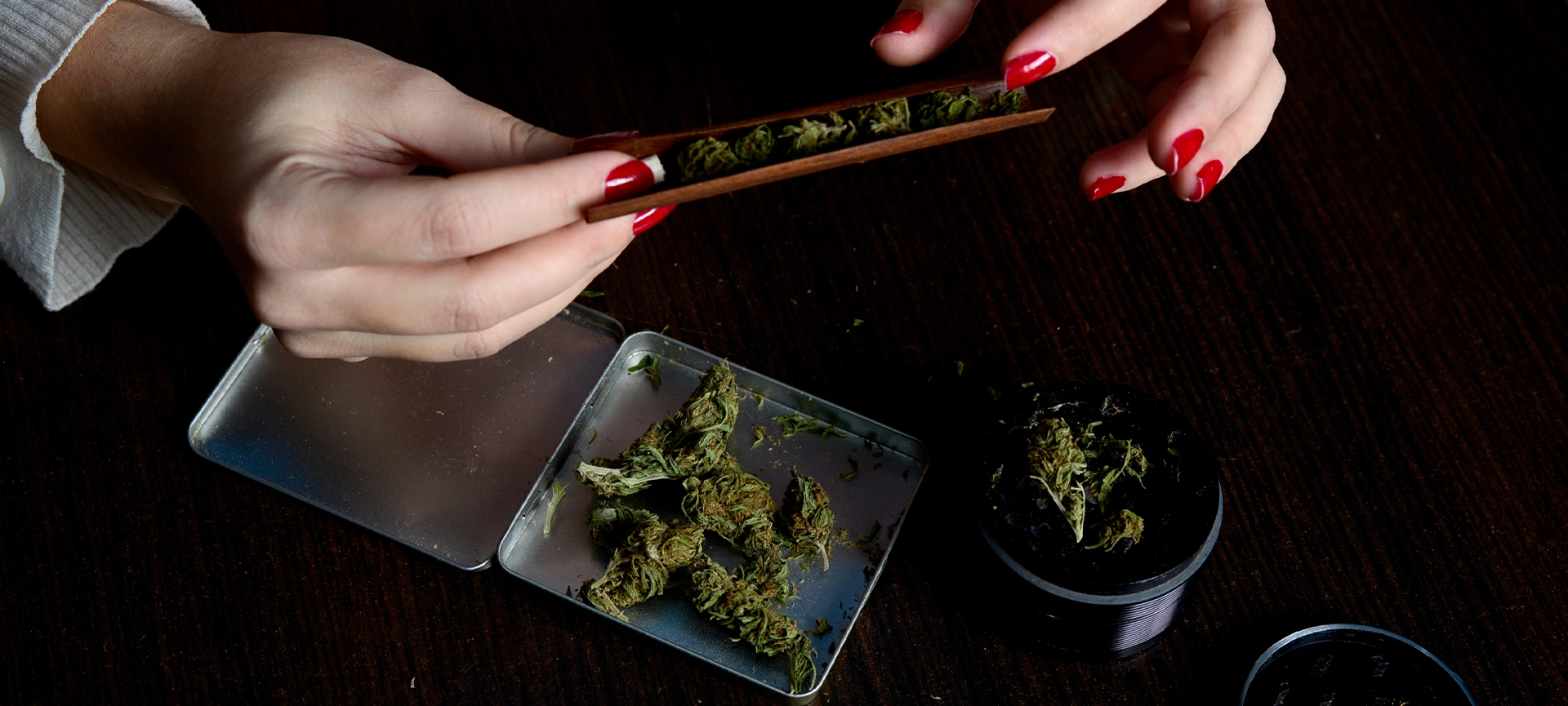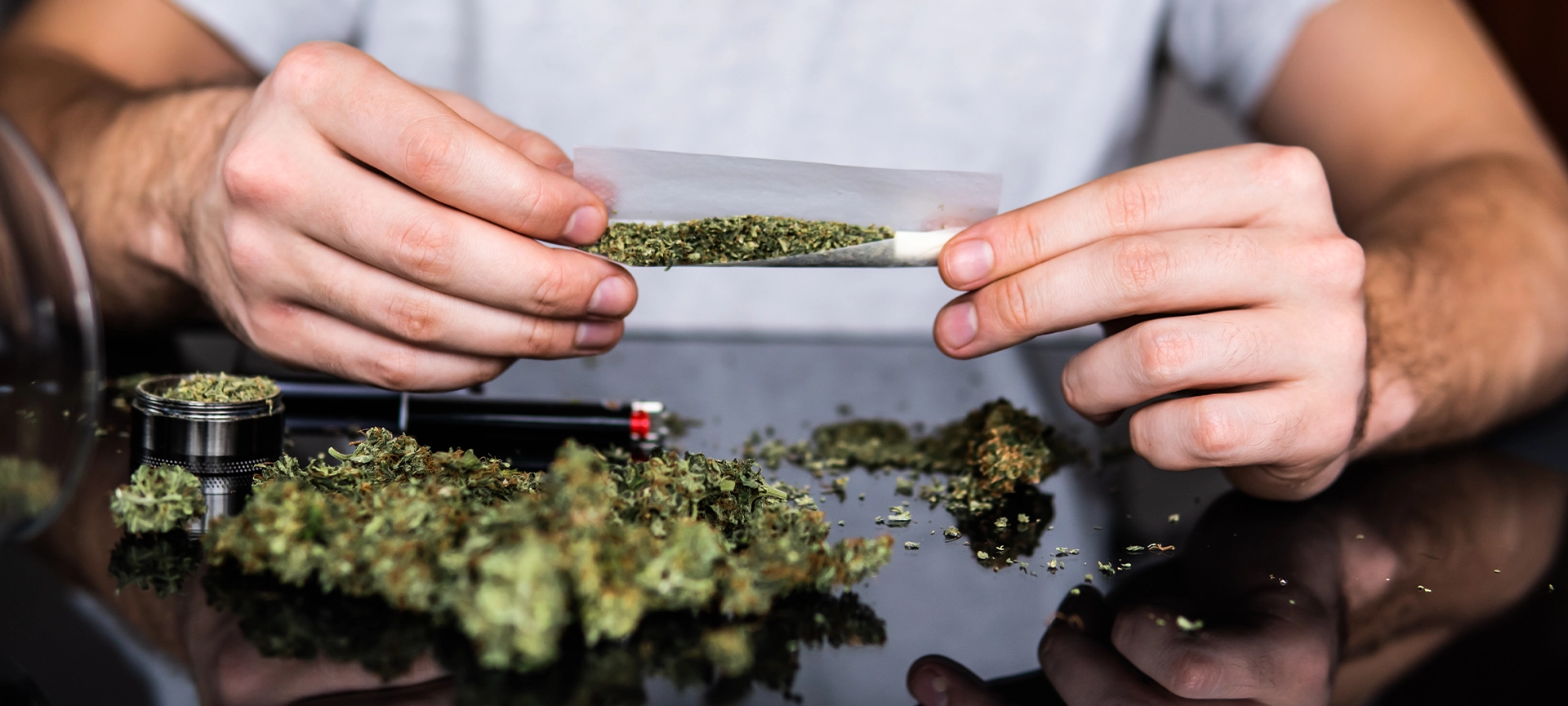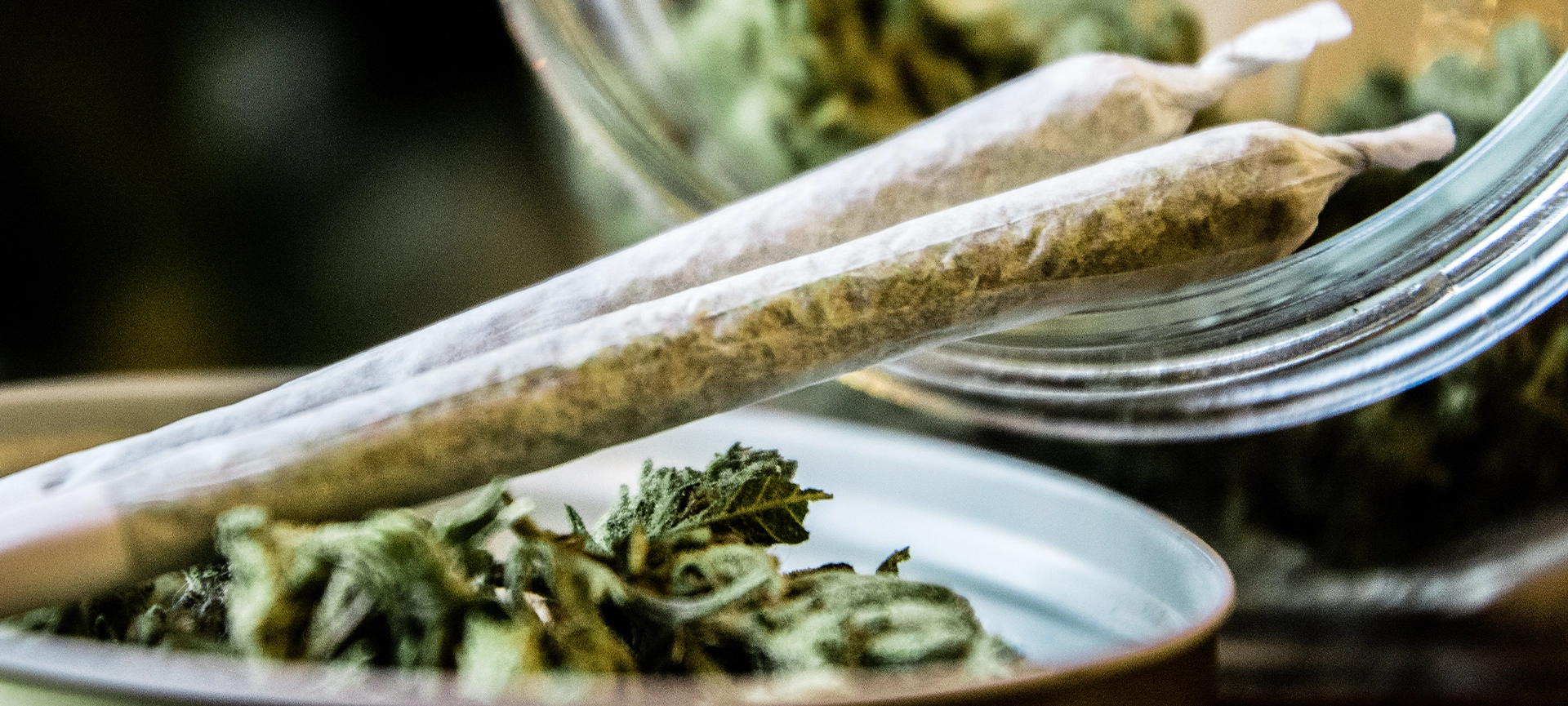Weed or marijuana is a legally approved substance for medical purposes. The legal status of this substance in Canada makes people assume it’s relatively safe. But, cannabis can be as addictive as other substances, causing health challenges.
According to Canada’s Health Infobase 2023 survey, about 26% of Canadians will take weed in 2023. And of these people, more than 90% admit that weed can have habit-forming effects on users. As such, you’ll need some life adjustments for an easy weed withdrawal process — should you try to quit.
Coping with cannabis withdrawal symptoms can be a challenging process. We’ll explore different habits you can form to help you manage weed withdrawal.
Symptoms and Timeline for Weed Withdrawal
Weed withdrawal symptoms occur due to the brain’s dependence on THC — a psychoactive compound in cannabis. You cut out the supply of THC to the brain when you stop smoking marijuana.
Here are some weed withdrawal symptoms you can expect when you stop smoking weed.
Cannabis Cravings
Marijuana cravings are a sure way to confirm your addiction to the substance. According to PubMed Central’s 2017 study, more than 70% of cannabis smokers experienced increased cravings for the substance when they tried to quit. The intensity of your cravings depends on your body system and the extent of your addiction.
That’s why one of the primary life adjustments for weed withdrawal is persistence. You’ll experience mild to extreme cravings for weed within the first few days of smoking. And if you aren’t persistent, you may have a relapse and resume smoking weed.
Losing Sleep
Cannabis can help you sleep quickly and soundly. A 2023 Sleep Foundation article says that cannabis increases the amount of adenosine that improves sleep.
You may have cases of insomnia when you stop smoking weed if you’ve been using the substance to sleep. Alongside, you may have strange dreams that will alter your sleep as another withdrawal symptom.
Sleep problems that accompany weed withdrawal usually start a few days after you quit. And it may last for less than a month — depending on the level of addiction.

Anxiety
Anxiety has a double-sided relationship with cannabis. You can get anxious when you’re high on weed, and it can also stand as a sign of weed withdrawal. This feeling is one of the most tricky weed withdrawal symptoms to manage.
Again, you need to be persistent and remain determined to quit weed. The anxiety wouldn’t last up to a week. If you’re still feeling anxious after a week, you should sign up for weed addiction programs.
Appetite Change
Quitting weed can also affect how much you eat and which meals become desirable to you. You may not feel like eating anything until you smoke cannabis. So, the cravings will become higher at this point.
Force yourself to eat something little at the appropriate times — irrespective of the appetite.
Easy Anger
For some users, weed has a way of bringing calmness and rest. So, you may notice that you get angry and irritated easily a few days after you start a weed detox.
This withdrawal symptom usually reaches its peak when you have a stressful day with no marijuana to help. At this point, everything and anything will get you angry.
Depression
Marijuana is a substance that affects the psychological part of your body system. As such, its absence will cause some adverse emotional effects on your body system.
Different thoughts may cloud your brain, causing an emotional dent in your personality. You may need a marijuana detox expert in Toronto to manage the effects of severe depression.
Symptoms of Flu
You may experience flu-like symptoms after you stop smoking weed. These signs may include constant headaches, muscle pains, sweat, and fever. These types of weed withdrawal symptoms are rare and depend on the system of the user involved.
In this case, you may need to get treatment for marijuana detox from a professional. They know the proper medications to use.
What is the Timeline for Weed Withdrawal Symptoms?
The symptoms that follow stopping weed only last a few weeks and a maximum of a month. As such, the lifestyle adjustments required for successful weed withdrawal are only necessary in the short term.
The symptoms vary depending on the extent of weed dependence and your health status. But you can expect the daunting symptoms within the first two weeks of quitting cannabis. If you notice any symptoms after this period, seek professional advice.
Related Article: The Transformative Benefits of Quitting Weed: A Journey to Wellness
Lifestyle Adjustments for a Smoother Weed Withdrawal
Here are some of the best habits to build when you start to detox from weed;
Understanding Why You Smoke
It’s always better to attack problems from its foundation. The first thing you want to do is to understand why you started smoking in the first place.
Was it peer pressure or an easy escape from reality? Or maybe you were using the substance for anxiety and sleep disorders before getting addicted?
Cannabis use in Canada is more common among teenagers and young adults. So, identifying the reason for your cannabis dependence will help fuel your will to stop. That way, you’ll develop the necessary persistence to stop your weed intake.

Select the Best Quitting Approach
There are two approaches you can utilize to stop cannabis intake including;
- Cold Turkey Approach: The cold turkey approach of stopping weed intake means you decide that you must stop taking cannabis in one day. It’s always harder to manage weed withdrawal symptoms with this approach — as they can be more intense. This approach is more complex, but it’s somewhat effective since the weed withdrawal symptoms come and go quickly. In addition, most users prefer this method because it seems like a fresh start.
- Reducing Weed Intake Gradually: This approach is less intense, as you’ll reduce your intake. That way, you have time to make some lifestyle adjustments for a successful weed withdrawal. Your body already gets used to lower amounts of weed till you quit eventually. You must have a specific date to quit, which you must follow. This approach is better for people with high dependence on weed.
Either one of the two approaches works well to help you quit weed. But cold turkey is a more preferred option. Reducing your weed intake may not work out, as you may increase the gauge, leading back to the addiction.
Have a Plan for Withdrawal
You can’t escape weed withdrawal, irrespective of the approach you utilize to stop. So, you need a viable plan for coping with cannabis withdrawal symptoms.
Your plan should also work alongside the approach you choose to quit weed. For example, if you’re quitting gradually, have milestones indicating how much you wish to reduce your weed intake daily or monthly.
Dispose Of Smoking Gear and Relationships
One of the first lifestyle adjustments you must make for easy weed withdrawal is doing away with all weed gear. These are triggers that will take you back to the addiction.
Throw away everything from rolling papers, vapes, pots, ashtrays, and other tools. By doing so, you’ll reduce easy access to weed.
Change Your Routine and Form New Habits
Smoking weed may be a morning or night routine for you. You need to find other activities that can replace the weed activity at these times.
For example, if you smoke first thing in the morning, you can try exercising or walking. Similarly, you can replace smoking at night with seeing movies, spending family time, and journaling.
Note that you’ll have heavy cravings while carrying out these activities, but you must remain consistent.
Come Clean to Your Loved Ones
The closest people to you are the ones who love you. And they can be beneficial to you in stopping your weed intake.
Choose your closest friends and family and explain to them that you’re trying to stop taking weed. Show them your plan and reassure them about your commitment to the cause. They can be your accountability partners — ensuring you follow the plan.
Create a Specific Sleeping and Exercising Timeline
Good sleep and regular exercise are great for your health and will help you with quitting weed. Apart from these activities replacing weed smoking, your body also gets used to the timing.
Maintain a specific timeline and period for sleep and exercise. Ensure you try your best never to miss this timeline, no matter what.
Eat Healthy
One of the life adjustments you must prepare for during weed withdrawal is food taste changes. Your favourite meals may no longer taste how you liked them when you were high. But you must still manage to do it.
Eating isn’t enough; you must eat healthy. Ensure that every single meal you eat has a balanced diet.

Ignore Relapses and Document Progress
Quitting weed is a complex task. So, you shouldn’t beat yourself up if you find yourself smoking during your withdrawal.
Instead, find a way to document your progress and always monitor it. You can have a calendar where you tick each day you don’t smoke and celebrate when you go without it for specific periods.
Relapse may occur during the weed withdrawal process, but you must keep going.
Get Help and Therapy When Necessary
Anyone trying to do away with weed will need professional help at one point or the other. It’s either you need treatment for marijuana detox, or you need help with therapy.
Weed affects your brain tremendously, so you need therapy to help restore normalcy. The required therapy depends on how much damage the weed has done. Some of the therapy types include;
- Cognitive behavioural therapy
- Motivational enhancement therapy
- Contingency management
Get Better with Toronto Weed Addiction Programs
Coping with cannabis withdrawal symptoms can be challenging. That’s why there are many failed attempts to stop weed intake. The lifestyle adjustments for an easy weed withdrawal process aren’t easy but possible.
It’s always easier when you must be accountable to someone you respect. The ideal person, in this case, is a professional.
That’s why we recommend making the lifestyle adjustments necessary for weed withdrawal with a professional’s input. You’ll do most of the work, but the professional will guide you.
At Addiction Rehab Toronto, we have leading specialists for one-on-one weed addiction treatments. Book an appointment with us to discuss weed detox and rehab programs.







